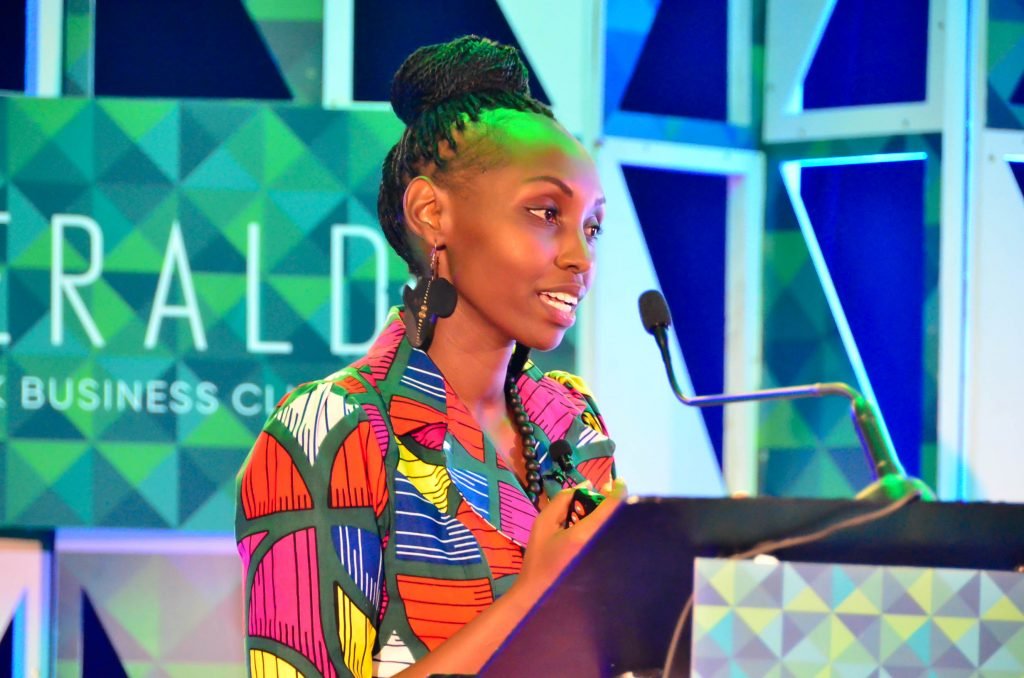Personally, I’ve had some instances where I had to be extra aggressive – ‘almost masculine’ – to get my way – Leah Nduati
By Victor Adar
Offering consultancy services in a foreign country, especially amid a pandemic and tough business environment, is no mean feat. Leah Nduati, who has been in Ghana for nearly 12 years, working with Growth Africa as a growth catalyst, knows this too well.
Ms. Nduati’s position involves offering advisory services to Small and Medium Enterprises (SMEs) at the growth stage. Her role is essentially about helping small players scale their businesses and also get them investment-ready for investments.
Following a bilateral trade agreement signed between Kenya and Ghana in December of 2014, Ms. Nduati launched the Kenya Trade Expo in Ghana, an initiative to promote businesses between the two countries.
“We facilitate a lot of business-to-business meetings, which are translated to business,” she says. “The business environment is open, and there are opportunities. So once you can set up here (referring to Ghana), then it is just a matter of hitting the ground running.”
In her view, trade missions mainly focus on governments, making it difficult for “business to business” conversations to occur. What surprises her, for instance, is how “government and government” meetings have always failed to spark deals. She argues that bringing the public into the mix is one way that will breathe life into trade agendas.



Memories of how she once organized an expo for the ministry of Agriculture and only a few business people attended are still fresh on her mind. Before the bilateral agreement, she had to make do with a “pseudo consular” government.
She was a representative without the title. But seven years later, Ghana and Kenya governments found meaning in advocating for an inclusive trade agenda.
“Now we have a Kenyan Embassy in Ghana, and we are working with them to make sure that they align with Kenya Trade Expo. We are happy to help them make the business environment favorable and onboard the business community,” she says.
In Kenya, a lot of business processes are quite straightforward and digitized. Ghana, on the other hand, is just starting to adopt digital channels. Recently, Nduati says, the Ghana Revenue Authority has gone digital so people can pay their taxes and file their returns online, a move that will simplify business journeys and improve convenience and efficiency.
“Currently, the government is in transition, let’s say, to digitization, but you need a lot more patience here and a lot more diplomacy,” she says.
Gender equality
Ms. Nduati is also part of ANDE (Aspen Network of Development Entrepreneurs) Gender Equality Initiative – AGEI. Actually, AGEI works to mitigate challenges that affect women-led businesses to prevent them from growing, especially in male-dominated segments.
Ms. Nduati argues that investments mostly go to male-led SMEs as opposed to those led by women. To her, women are generally not as aggressive as men when it comes to going after investments. At the same time, she adds, investment bodies and vehicles need to understand that women have their own style and approach.
Some of the questions she grapples with are: How can women who meet traditional men who want them to stay in their place be supported? Why do women find it difficult to approach boards of advisors?
“I’ve had some instances where I had to be extra aggressive – ‘almost masculine’ – to get my way. But I would say that as much as you try to fit into cultural norms, and as long as you know the mission driving you, it becomes easier,” says Ms. Nduati.


